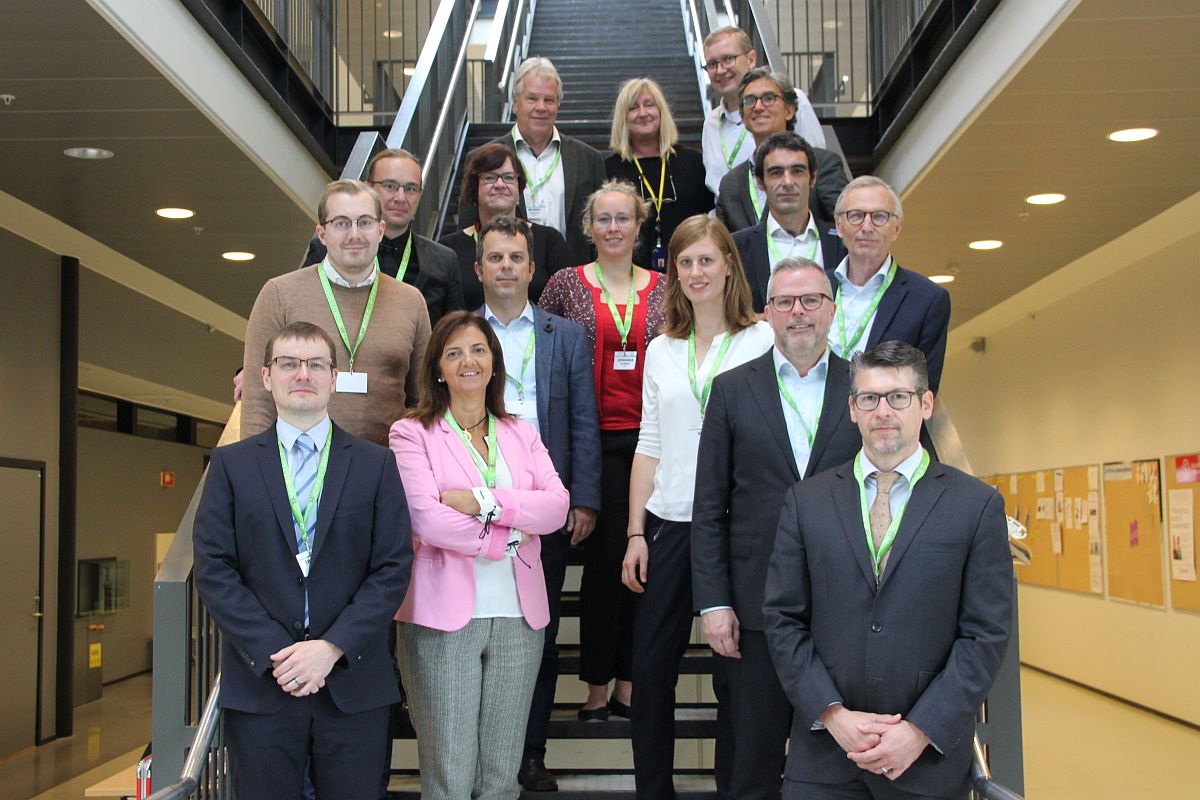About BILT: Our approach | Themes | Who we are
Get involved: News and events | BILT community | Expert group | Self-Reflection Tool
Knowledge base: Innovative and promising practices | Atlas of emerging trends | BILT library | TVETipedia

UNESCO-UNEVOC and OsloMet organized a two-day workshop on Digitalization as part of the Bridging Innovation and Learning in TVET (BILT) Project. Experts from ten European countries (Netherlands, Switzerland, France, Austria, Portugal, Ireland, Spain, Estonia, Germany and Norway) presented cases of how they tackle the challenge of Digitalization in TVET, ensuring that TVET remains relevant and up-to-date on digital skills. The high-level guests included representatives form Norwegian Ministry of Education and Research and the Confederation of Norwegian Enterprise. Some sessions were also was attended via video conference by Kyambogo University, a UNEVOC Centre from Uganda, as well as partner institutions from Sweden.
Digitalization has entered the world of work at a massive scale, bringing a whole range of opportunities and challenges to the private sector and TVET providers. As a result of the digitalization processes occurring across all areas of work, TVET graduates increasingly need to acquire 21st century competencies and specialized IT skills. TVET teachers have a key role to play in understanding the current changes and preparing students for the demands of new digital economies. The BILT workshop on Digitalization took stock of these current systemic challenges, emphasizing the role of TVET teachers and the importance of close collaboration between industry and TVET institutions. The European experts shared and discussed initiatives related to two main topics:
Participants agreed on the importance of preparing students for the jobs of the future using advanced technologies, and the need to provide ICT training to teachers to equip them with 21st century tools. This requires not only an update on curricula to cover new skills and competencies, but also an adjustment in the way that skills are taught.
Beyond the digital skills themselves, the participants highlighted the need to establish better collaboration and trust between the private sector and training institutions. Namely, improving partnerships through active collaboration efforts was the key element of success in the cases presented in the workshop. Both stakeholders are closely connected and co-dependent: on the one hand, some SMEs depend on training institutions to understand the development opportunities provided by digitalization; on the other hand, TVET schools depend on the private sector to ensure relevance of their training.
Regarding further collaboration within the BILT project, participants underlined the importance of knowledge sharing and peer learning. Proposed activities included study visits, translating and sharing materials, and sharing innovative approaches. Finally, participants proposed to look for common traits that connect the different BILT thematic work streams.
The workshop on Digitalization was the first of five within the BILT project, which will focus on the thematic areas of Greening, Digitalization, Entrepreneurship, Migration, and New Qualifications and Competencies. The BILT project aims to facilitate the exchange of experiences and peer learning across the European UNEVOC Network within these thematic work streams.
For more information on the event, please consult the workshop agenda and participant list.
The BILT project is implemented by
with support of
and sponsored by